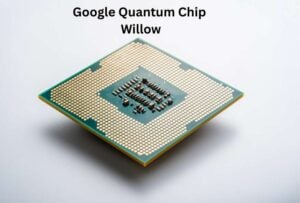Quantum Sensors: Revolutionizing the Search for Dark Matter
What is Dark Matter and Why Does it Matter?
Dark matter makes up about 27% of everything in the universe, yet scientists don’t fully understand what it is. Quantum sensors play a crucial role in holding galaxies together and helping form the large cosmic structures we see today. Despite many efforts, dark matter particles such as WIMPs (Weakly Interacting Massive Particles) and axions remain undiscovered because they interact very weakly with normal matter.
This mystery has motivated researchers to seek new and better ways to detect dark matter. Traditional detectors face challenges due to the faint signals expected from these elusive particles.
How Quantum Technology Offers a New Approach
Superconducting Qubits as Ultra-Sensitive Sensors
Scientists are now turning to quantum technology, specifically devices called superconducting qubits, which can detect extremely small changes in fields caused by dark matter. These tiny quantum systems can shift their state when influenced by dark matter’s weak forces, acting like ultra-precise sensors.
Building Quantum Sensor Networks for Better Precision
A single qubit is powerful, but connecting many qubits into a quantum sensor network greatly improves detection capabilities. By carefully arranging qubits in different patterns—like lines, rings, or stars—and linking them using controlled quantum operations (called CZ gates), researchers increase sensitivity exponentially compared to individual sensors working alone.
The Role of Optimization and Noise Resistance
This approach uses an optimization technique known as variational quantum metrology (VQM), which fine-tunes both the initial states of the qubits and measurement strategies. This ensures maximum precision while keeping circuits shallow enough for existing noisy quantum hardware. Importantly, these networks maintain high accuracy even when local noise affects some qubits—a common challenge in real devices.
The Future Impact of Quantum Sensing on Science
This innovative method not only holds promise for detecting unknown forms of dark matter but also advances other key scientific tools like gravitational wave detectors, precise spectroscopy instruments, and sensitive magnetometers. By improving how we measure tiny signals across different fields, quantum sensor networks may lead us closer to solving major physics puzzles.
Reference:
Santoso, A. I., & Ho, L. B. (2025). Optimized quantum sensor networks for ultralight dark matter detection. Physical Review. D/Physical Review. D., 112(8). https://doi.org/10.1103/rv43-54zq
Additionally, to stay updated with the latest developments in STEM research, visit ENTECH Online. Basically, this is our digital magazine for science, technology, engineering, and mathematics. Further, at ENTECH Online, you’ll find a wealth of information.






